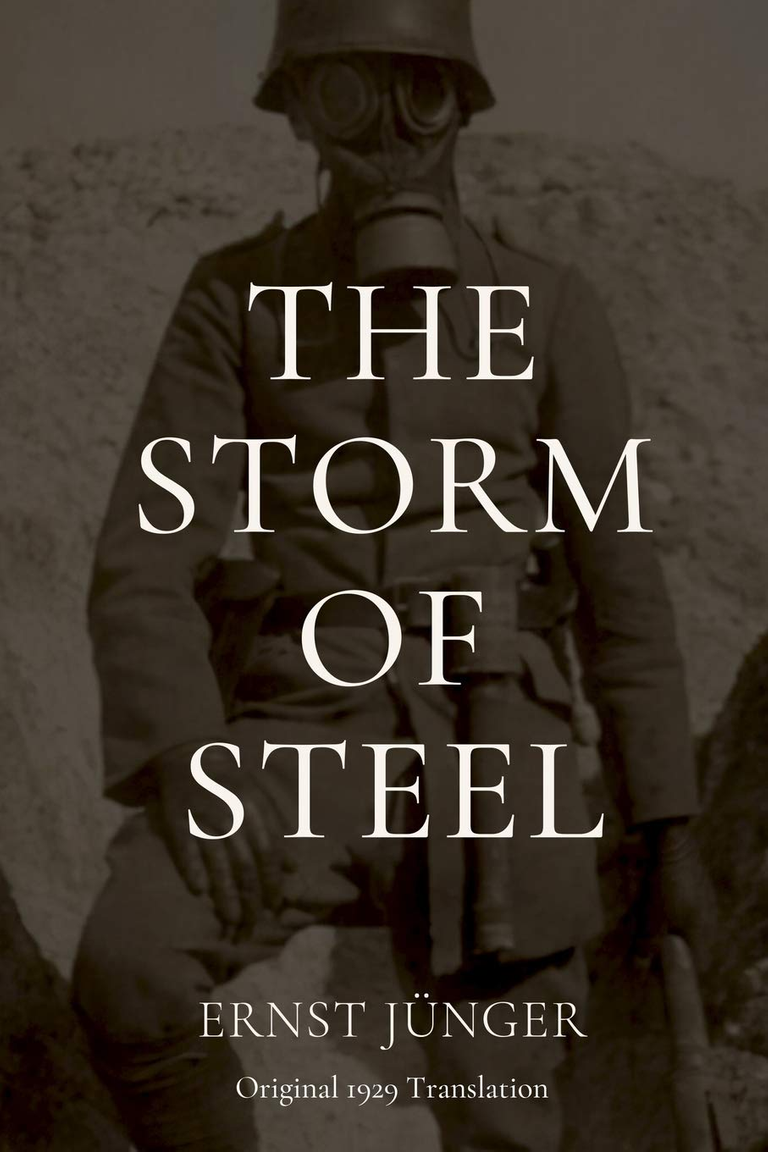
Good day Hivers and Book Clubbers,
After a detour into the realm of fiction, with my reviews of the three books that make up the Hunger Games trilogy, we're back to my most common form of read books; non-fiction. This time, it's a war memoir that's on the table. It is titled 'A Storm of Steel', written by Ernst Junger, a German lieutenant during the war.
Originally published in German in 1920, it saw its first translation in English in 1929 by Basil Creighton. This translation is once again in print, and I got my copy from Amazon, so it should be available in many countries at this point. Of course you should look into the German version if you're adept at reading that. My German is not that good, and I was hesitant to pick it up in German, so I chickened out with the English version. The story proper is around 160 pages, and you get through it quite well.
The other perspective
World War 1 still lives in the collective consciousness of Europe, even though it is now more than a century ago. Its impact on geopolitics is massive, and a fight was probably inevitable in ante-bellum Europe. But I'm not looking to delve into European geopolitics here, and neither does Junger in the book. It starts very matter-of-factly with his first deployment in northern France in January of 1915.
The war had started very recently, and many German soldiers, including Junger, were eager for the fight. They of course coulndt've realized at that point that the war would take four years. They also couldnt've realized what type of warfare was going to be their daily business in those years.
Junger already was an officer leading dozens of men at age 20, which is quite baffling to me. He proved to be a man that led by example, always taking a risky role for himself. This, in turn, was a great motivating factor for his men, who also pulled off many daring feats during the length of the book.
Technology and bravery
Junger points out near the end of the book, that although technology had transformed war quite drastically at that point already, it was still men themselves that were of the essence. Morale, bravery, and other personal and collective qualities were still of the essence, and Junger was quite proud of the way the Germans held themselves, both as soldiers and as officers, during the entirety of the war.
The losses, however, were at points catastrophic. Certain attacks, and the defences of certain villages or even just fields, would make Junger lose the vast majority of all his men. Artillery was the name of the game; every offensive was started with massive barrages of the enemy lines. Junger spends a lot of time hiding from artillery barrages that could take all day, and the 'drumming' sound is described often, since it was all-pervasive then.
The story also features the gas mask used on the book cover; it describes the use of gas-attacks on both sides, though with varying effect. At one point Junger runs through a cloud without his gas mask on, which hurt him quite severely.
Odd encounters
There is also room for levity in this book about war, though. Junger recounts many tales of cameraderie with his soldiers, other officers, etc. The soldiers often got several weeks on leave, in which Junger sometimes returned to Germany for a while. There is also, for example, the on-and-off relationship he had with a French girl on a farm not too far from the front (Junger spoke both French and English back then).
One encounter that I found quite amusing was when Junger and his men were in a fight with an English formation, but they found out pretty quickly that they weren't fighting Englishmen. They shouted among themselves, figuring out what language they were hearing from the other side; it wasn't English, it wasn't French either, and it sure wasn't German. After capturing some of them, they found out that they were from Punjab, India, and were colonial troops supplementing the English line. Probably the first time for many of the German men to have ever met Indians.
Conclusion
The book is a well-written memoir; it is clear why Junger became a writer later on in his life. There a distinct style recognisable, even in the English translation, which reads quite well. It offers the perspective of the side that lost, though that is not clear during the vast majority of the fighting. It is important to remember that the front-line was still in France during the request for armistice from the German high command; this was far from the absolute defeat Germany suffered during WW2.
For people looking for a unique perspective on World War 1, this might be a great one to pick up. There is a lot that I left out of this review, of course, which is also worth your time. I hope to see you all in a next review,
-Pieter Nijmeijer
(Top photo; book cover)
Your content has been voted as a part of Encouragement program. Keep up the good work!
Use Ecency daily to boost your growth on platform!
Support Ecency
Vote for new Proposal
Delegate HP and earn more